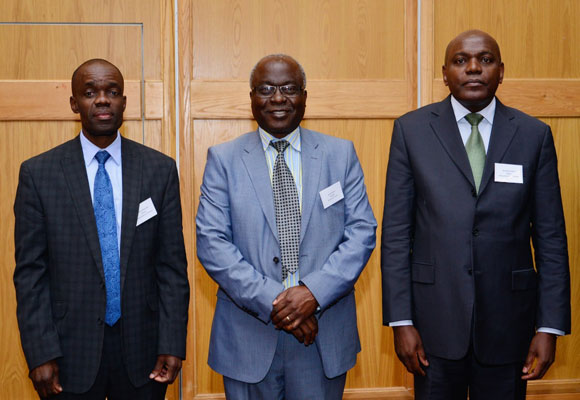Angola, Namibia and Zambia vow to take action on illegal timber trade
Windhoek, Namibia, 7th August 2015—the first ever collaborative workshop on forest management and timber trade between Namibia, Angola and Zambia ended this week with agreement reached on developing a time bound Action Plan for collective forest management and timber trade.

Directors of Forestry and support staff from the three countries met during the workshop hosted by the Directorate of Forestry of Namibia and supported by IRDNC (Integrated Rural Development and Nature Conservation) and TRAFFIC under a SASSCAL timber project.
“TRAFFIC welcomes the development of the forestry Action Plan to address the growing concern that timber species found in Namibia, Angola and Zambia are subject to overharvesting and associated illegal and unregulated trade,” said TRAFFIC Senior Programme Officer, Markus Burgener.
High-value species including Pterocarpus angolensis (Kiaat), Baikaiea plurijuga (Zambezi Teak) and Guibourtia coleosperma (Rosewood) are used domestically for construction but the majority of wood extracted is exported from the region as sawn timber to supply markets in Asia and South Africa. Due to the cross-border nature of the trade, it is critical for the three countries to collaborate in addressing the related challenges to ensure that trade in the species is legal and sustainable.
The meeting aimed to identify the key issues associated with forest management and timber trade, and develop a collaborative Action Plan for addressing them. Through a process of information sharing and open discussion, the main challenges identified included inadequate communication between the countries, lack of awareness of forestry regulations, limited information and data sharing, capacity resource shortfalls and legislation and policy gaps.
Having identified these issues, the three countries collectively developed a time bound Action Plan which includes the development of a Memorandum of Understanding for collective forest management and timber trade. Other key areas targeted by the Action Plan include harmonization of documentation, greater sharing of information and data and cross-border collaboration for increased compliance. The Action Plan also addresses the need, in all three countries, for capacity building to tackle the overharvesting and illegal trade of timber effectively.
In order to monitor the implementation of the Action Plan an annual workshop has been requested by the Directors of the three countries, with plans to encourage greater SADC country participation.
The workshop resulted in both the development of a clearly articulated set of actions and the strengthening of relationships between the three forestry Directorates.
“These outcomes provide a strong platform for the conservation of woodlands in the region,” said Burgener.



